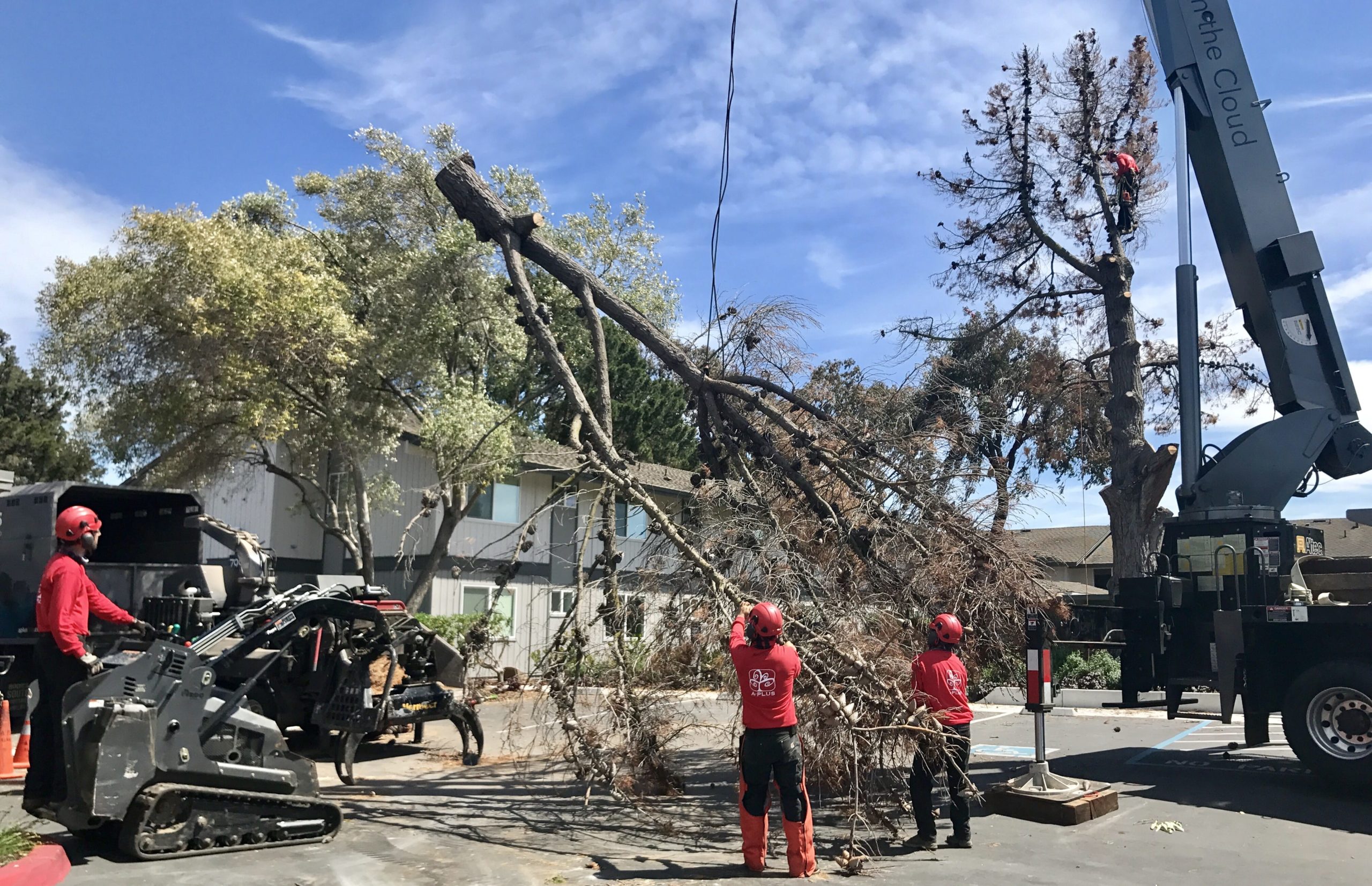Passion, drive, tenacity — it takes a combination of the three to start a business, but if you ask Jeremy Tibbets, founder of A Plus Tree Service based in Concord, California, it takes an extra element of “ridiculousness” to be a successful CEO.
Finding a niche
Tibbets started A Plus 15 years ago at the age of 21 with not much more than hopes and dreams. He didn’t have a business plan, or a team of experts to guide him — he had a vision for a great tree care company with a focus on innovative technology to help make every job more productive than the last. And A Plus does just that.
“I love being awesome; we specialize in the ridiculousness — the crazy projects that some people would never even think of,” Tibbets said. “We invest heavily in new equipment development and our software.”
In addition to the tree care services that A Plus offers, they’ve also developed the tree management app, ArborPlus. ArborPlus is a mobile- and web-based app that helps users efficiently manage large tree populations across multiple properties in a paperless, user-friendly tool stored safely in the Cloud. A Plus also creates furniture as a way to upcycle tree care byproducts. This combination of services has created a successful business niche for the company.
“What I would recommend, is to not only focus on what you’re going to be doing, but to build your business plan with a ‘why.’” Tibbets explained. “Keep asking yourself: Why are we doing this? Why are we special? Why are we even investing in this business with our time and our money? Why do we care? Why should our clients care? Why should our clients’ clients care? The ‘Why’ takes some soul-searching, but that’s the best thing you can really do for you, your customers, your employees and your community.”
More than a job title
If you ask Tibbets about his role as a CEO, you’ll be greeted with years of wisdom, advice and honesty.
“I’m the CEO, and I don’t say that lightly — when you first get started, you put your name in every position from president to sales and operations,” Tibbets said. “As you grow and start having more of a ‘Why,’ the CEO position becomes much more important.”
If you’re looking for a definition, a typical CEO is responsible for making major company decisions, managing overall operations and resources and acting as the main point of public communication. Tibbets agrees that these responsibilities are part of his day-to-day, but stresses that this position is more than just crunching numbers — it’s about true leadership.
“As the CEO, I work on our vision and staying true to our vision, which is to inspire urban forest management throughout our industry and becoming a part of our community,” Tibbets said. “Our company is in four different states and growing, so making sure we’re on the right path is important.”
A large part of a company’s path is its culture, said Tibbets. A company culture refers to the beliefs and behaviors used to determine how the employees and management interact and handle business transactions.
“The other part of being a CEO is keeping the culture alive — it’s about making sure that the company’s philosophies and the company’s heartbeat are mostly in line with what we want them to be,” Tibbets said. “And lastly, the CEO has to be the rockstar of the company, and that is what I do best.”
Tibbets strives to emulate a rockstar persona like some of the most well-known CEOs in the world as a way to motivate employees and represent his brand.
“When you think of all the excellent CEOs of excellent companies, names like Elon Musk, Steve Jobs, Richard Branson come to mind because they are almost two brands in one,” Tibbets said. “Whether you realize it or not, a company takes the vibe of the leadership — to be unaware of that is ignorant.”
Leading the pack
While there is plenty of paperwork to be done as a CEO, Tibbets says it’s also important to stay unchained from a desk.
“Leaders have to be out there meeting other CEOs of other companies,” Tibbets said. “I’m the face; I’m the person that shakes the hands. It’s important to be the person going from business to business. You’ve got to be out in the world; out in the public. You’ve got to get the feel of the people and know the vibe!”
By networking and staying active in the community, Tibbets said you’ll be able to properly tell your company’s story and get more people behind you.
“Above all else, the most important thing is your clients and vendors, and building those relationships,” Tibbets said. “Despite what you may think, they want you to succeed and they want to hear your story. Once you start building those relationships, it will pay dividends for years.”
For insight into the Vermeer Tree Care products, read more from our Building Your Business series or view more articles on the Tree care, rental and landscape blog.
This article contains third-party observations, advice or experiences that do not necessarily reflect the opinions of Vermeer Corporation, its affiliates or its dealers.
Vermeer, the Vermeer logo and Equipped to Do More are trademarks of Vermeer Manufacturing Company in the U.S. and/or other countries. © 2017 Vermeer Corporation. All Rights Reserved.

